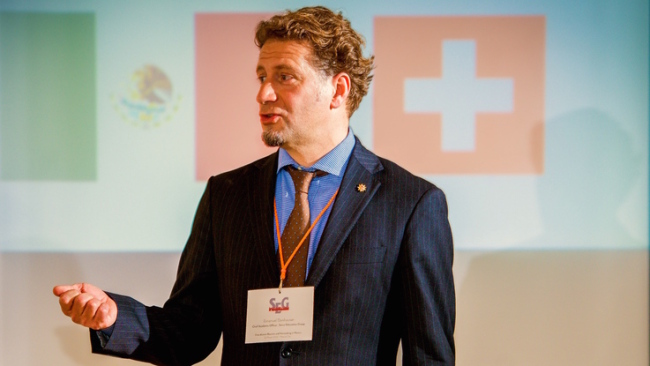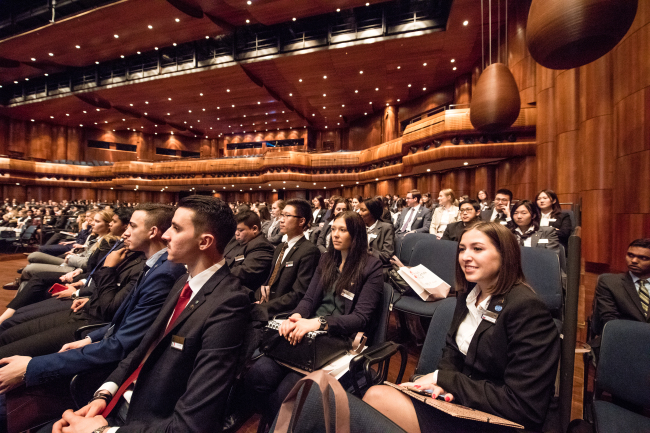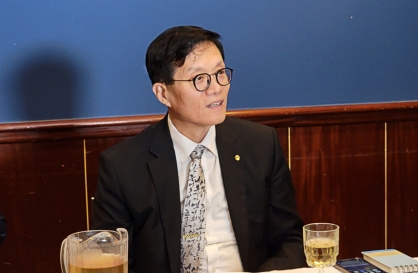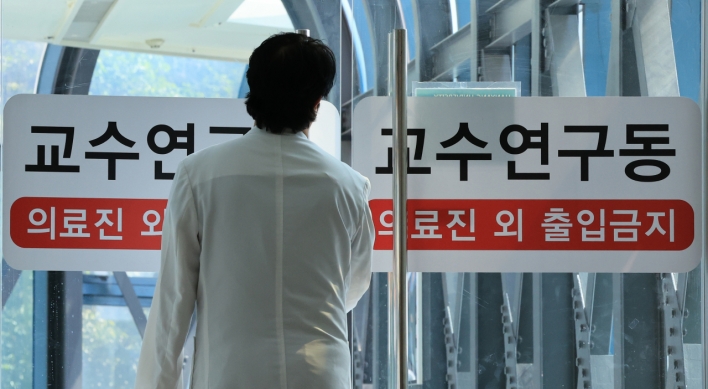[Herald Interview] The meaning of luxury hospitality in the age of Airbnb
By Rumy DooPublished : March 24, 2017 - 13:32
MONTREUX -- As travel becomes cheaper and more personalized with the advent of online lodging services like Airbnb, feedback sites like TripAdvisor, and itinerary planners like Google Trip, the notion of “hospitality” is changing.
Some say the emerging services have led to a decline in the hotel business. The leaders of Swiss Education Group, however, argue that the field of hospitality -- a sector which incorporates hotel management, fine dining, concierge services and luxury branding -- has expanded rather than been upended.
“Face-to-face hospitality is not decreasing,” Emanuel Donhauser, the chief academic officer of SEG, which operates five schools specializing in hospitality, said during an interview in Montreux, Switzerland last Monday.
Donhauser met with reporters at the International Recruitment Forum, a two-day event hosted by the SEG which brings together industry personnel and students of the hospitality world to network, share information and sign prospective job contracts. Over 90 hotels, including prominent brands such as the Four Seasons, Mandarin Oriental, and Lotte participated this year.
New developments in hospitality may be enlarging the pie, but they’re not taking the place of traditional luxury services, Donhauser said.
“It is through Airbnb that people who couldn’t afford to stay in Paris for a week 10 years ago, now can. But those aren’t people who would have gone to expensive hotels before,” he said.
Though the new services allow travelers to draw up their own plans and take charge of their experience, there is still something to be said for the luxury of being indulged, according to Florent Rondez, SEG’s CEO.
They’re two different experiences,” he said. And as markets become increasingly compartmentalized, they deliver to a consumer base with demands that are growing more specific: Highly privatized services in areas such as banking, dining, medicine and accommodations are growing, Rondez noted.
Some say the emerging services have led to a decline in the hotel business. The leaders of Swiss Education Group, however, argue that the field of hospitality -- a sector which incorporates hotel management, fine dining, concierge services and luxury branding -- has expanded rather than been upended.
“Face-to-face hospitality is not decreasing,” Emanuel Donhauser, the chief academic officer of SEG, which operates five schools specializing in hospitality, said during an interview in Montreux, Switzerland last Monday.
Donhauser met with reporters at the International Recruitment Forum, a two-day event hosted by the SEG which brings together industry personnel and students of the hospitality world to network, share information and sign prospective job contracts. Over 90 hotels, including prominent brands such as the Four Seasons, Mandarin Oriental, and Lotte participated this year.
New developments in hospitality may be enlarging the pie, but they’re not taking the place of traditional luxury services, Donhauser said.
“It is through Airbnb that people who couldn’t afford to stay in Paris for a week 10 years ago, now can. But those aren’t people who would have gone to expensive hotels before,” he said.
Though the new services allow travelers to draw up their own plans and take charge of their experience, there is still something to be said for the luxury of being indulged, according to Florent Rondez, SEG’s CEO.
They’re two different experiences,” he said. And as markets become increasingly compartmentalized, they deliver to a consumer base with demands that are growing more specific: Highly privatized services in areas such as banking, dining, medicine and accommodations are growing, Rondez noted.



Medical tourism is a field in which Switzerland is seeing a steady growth since 2000, according to Health-Tourism.com. Patients venture there for pricey and rare procedures such as infertility and stem cell treatments, due to the country’s highly trained physicians and lower costs -- 30 to 50 percent lower compared to costs in other western countries.
“We’re currently in talks to collaborate with prestigious Swiss clinics to create programs incorporating the very specific services the clients require,” said Donhauser.
Such examples could be applicable to Korea, where the medical tourism industry, with a focus in cosmetic surgery and dentistry, is likely to reach $2 billion by 2022, according to a February report by Research and Markets.
Other service-intensive areas of the hospitality industry include serviced residential apartments that provide hotel services such as cleaning and dining, and concierge services that offer a personal assistant of sorts to travelers, Donhauser said.
The SEG leaders are optimistic about the growth of hospitality as a whole. “The upside of (the industry) is that it’s always booming worldwide –- it just switches to different regions,” said Rondez.
New luxury brand hotels can break into the market, and have the potential to surpass existing brands if strategized properly, he noted. The most expensive bedroom in Moscow is a suite in Lotte Hotel, reaching 1 million rubles ($17,360) per night; the hotel has gained a reputation there for offering the height of opulence. “There are no more boundaries in terms of nationality,” said Rondez.
By Rumy Doo (doo@heraldcorp.com)




![[AtoZ into Korean mind] Humor in Korea: Navigating the line between what's funny and not](http://res.heraldm.com/phpwas/restmb_idxmake.php?idx=644&simg=/content/image/2024/04/22/20240422050642_0.jpg&u=)





![[Herald Interview] Why Toss invited hackers to penetrate its system](http://res.heraldm.com/phpwas/restmb_idxmake.php?idx=644&simg=/content/image/2024/04/22/20240422050569_0.jpg&u=20240422150649)







![[Herald Review] Xdinary Heroes kicks off five-month-long project with solo concert, teases new album](http://res.heraldm.com/phpwas/restmb_idxmake.php?idx=652&simg=/content/image/2024/04/22/20240422050539_0.jpg&u=20240422152154)
![[Today’s K-pop] Illit logs 100m Spotify streams with debut song](http://res.heraldm.com/phpwas/restmb_idxmake.php?idx=642&simg=/content/image/2024/04/22/20240422050650_0.jpg&u=)